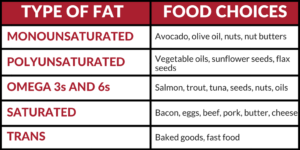
We know protein is essential for muscle development and carbs are needed for energy, but what role do fats play?
Facts about dietary fat:
Fats have more calories per gram (9) than both protein and carbohydrates (4).
Fats can be classified as monounsaturated, polyunsaturated, saturated, and trans based on their molecular structure.
Fat makes food taste better so beware of “no fat” labeled foods. Chances are they are loaded with sugar.
Fats play a crucial role in our health. Joint structure, cell membranes, and hormonal production are all dependent on adequate intake of healthy fats. There are also many vitamins including vitamin A, D, E, and K that are fat-soluble, meaning they require fat to be absorbed fully in the body. Muscle growth is also dependent on a fat-based steroid hormone, so if adequate intake of fat is not met you will not build as much muscle as possible.
What are healthy fats?
We have all heard that we should be eating “healthy” fats, but what does that mean? Almost all fats are healthy except for trans fat, some needing to be consumed in greater quantities than others. Monounsaturated and polyunsaturated fats are considered healthy fats which help to increase HDL cholesterol and decrease the more unhealthy LDL cholesterol. Foods containing omega 3 and 6 fatty acids are considered essential since the body cannot make them from other nutrients. Saturated fats have health and body composition benefits, but it is common to overeat this type of fat and should be limited.
How much fat should you be eating?
Ten percent of your bodyweight in grams of fat should be considered the minimum daily consumption. Optimal intake will be closer to ten percent of total daily calories. One thing about fat is that there isn’t much of a drawback from overconsumption of the healthier options. Over consuming protein will wreak havoc on your kidneys. Too many carbohydrates in the diet could predispose you to insulin sensitivity and lead you to pre diabetic complications. As long as calories are maintained, more healthy fats don’t pose much of a problem. With that in mind, an increase in fat consumption should be considered when looking to gain mass.
On the other hand, fat – when trying to lose weight – can serve different purposes. Decreasing fat in your diet can help lose weight more easily, since fats have more than double the calories per gram than both protein and carbs. Keeping fats high in the diet can also be helpful when attempting to lose weight as it is easier to overeat less filling carbohydrates.

When should you eat fats?
Proper nutrient timing in your nutrition plan can help maximize results. Fats are digested much slower than protein and carbs, so eating a fatty meal before, during, or immediately after a workout or game is not optimal. Carbs should be eaten closer to physical activity because of the fast absorption – they can be used immediately. Protein is also something we want to be absorbed quickly following a workout to maximize muscle growth. Eating something like barbecue post workout might seem like a good idea since you know you’re getting a lot of protein, but because of the high fat content, those amino acids won’t be absorbed until hours later. Think about eating carbs closer to activity and fats further away from competition/practice. Also consider consuming some fat and protein as your last meal of the day. Because of the delayed digestion from the fats, you can be assured to receive a gradual dose of amino acids throughout the night as you sleep.
Now that we know more about fats we should have a better idea on what healthy fats consist of, what ratios we should be eating them in, and when the best time is to eat them. Protein and carbs get the majority of the attention when talking nutrition, and rightfully so. After reading this I hope that you now have greater appreciation for the role of fats in the diet and the vital role they play in overall health and optimal athletic performance.

Leave a Reply